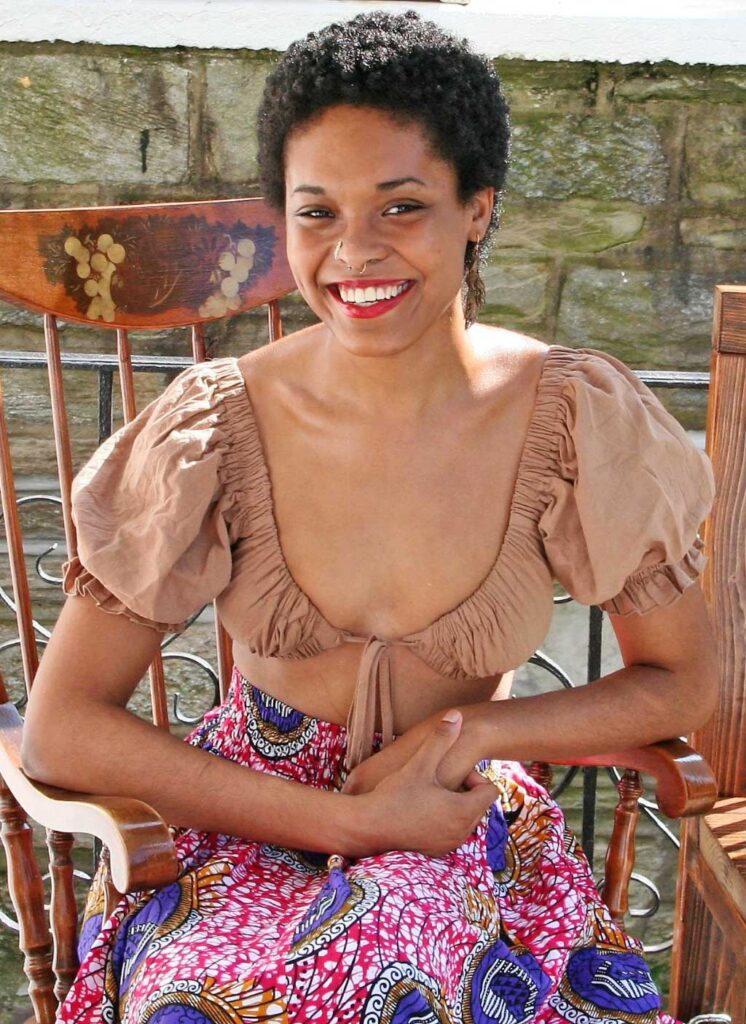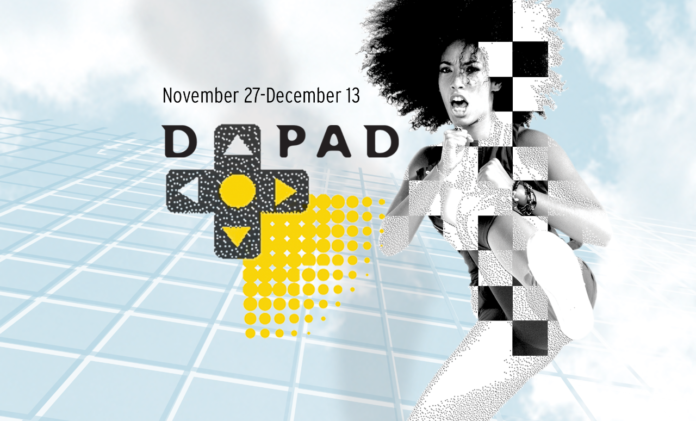Ang Bey is ready to take the theater world by storm. Bey, a queer, nonbinary actor and multidisciplinary artist, leads the world premiere of Jeremy Gable’s “D-Pad,” which is produced by Theatre Exile and runs Nov. 27 to Dec. 13. With theaters still closed due to the ongoing COVID-19 pandemic, “D-Pad” — which concerns the world of online gaming — will be rehearsed and performed in an entirely remote manner. Bey spoke with PGN about adapting to digital theater, their desire to create work that reflects their identity, and how the performing arts shaped the person they are today.
Even though “D-Pad” will be performed live over the course of the run, the actors will be appearing remotely from their homes. How has it been getting used to this new way of doing theater?
It’s been weird, but I came into this specific process with some experience of doing Zoom acting before. All rehearsals, all the tech is happening in our homes. We had load-in this weekend, so now I have a lot of really expensive gaming equipment and monitors sitting in my room. As I’m talking to you right now, I’m sitting in the set, which is my room. That’s always strange, because there’s no separation as an actor of the physical space, of the character and yourself. Wrestling with that is a blessing and a curse, because I always feel like I’m immersed in the play, but sometimes I need to take off that hat and go watch “Fargo” or something. It’s something that’s true of all the Zoom acting I’ve done: You’re suddenly hyper-aware of what your space looks like. There’s a class divide in that. I’m still a struggling artist, and my laptop before I realized we were in this for the long haul was not up to date to really sustain virtual theater. “D-Pad” is a world premiere that is going to be professionally polished, with sound design, and there was no way my old laptop from college could handle all that. So I had to preemptively update all my equipment before even knowing I was going to get a show like this.
Can you tell me a little bit about the show and the character you play? Since one of the main themes is the world of virtual gaming, I imagine it’s fairly well suited to the current online model of production.
“D-Pad” is about Alex Neubauer, the character I play, who is a bright, young video game developer who is very successful and talented, and is breaking away from the mainstream game industry to go indie. She’s doing it with her new game, “D-Pad,” which is about her sister, Rachel. It’s a play about isolation, loneliness, memory, nostalgia, and throughout it, we follow Alex on a journey to discover what it means for her to live in the real world. It’s a play about confronting your reality, and what that means when you’re alone. Specifically, it’s been adapted to be performed virtually, so everything that’s happening is all in-world. The characters are communicating with each other through Skype and YouTube, and some really cool things are happening with the design process for the video game stuff. It’s also a very feminist play — it takes place in 2015/2016, a time when the #MeToo movement was very prominent, and it also brings in the Black Lives Matter movement. It’s a period piece in that way, but there’s lots of resonance for 2020 and after.

As a nonbinary actor, what kinds of roles do you look for that reflect your personal identity?
I’ve played roles across the gender spectrum since I started acting professionally. I remember very specifically in high school, before I was out: I was a quote-unquote cis-straight woman, and I remember recoiling when one of my directors asked if I would be open to playing a man. I was like, “No, no.” This was part of the internalized transphobia and homophobia that I’m continuing to work through today. But it really stuck with me — why would he assume that I would be willing to step outside of my “comfort zone” to play a gender that is, and I’ll use more quotes here, opposite of my own? Ultimately, I didn’t get a male role in that play, but then in high school we did “RENT,” and I played Maureen. Again, there was internalized homophobia. I had a conversation with the theater head at my school: I don’t know if my parents will be accepting of me in this role, I’m confused about whether I can play this role. She said, “Ang, do it. Maybe you’ll discover something more about yourself.” And I absolutely did. Ever since, I’ve been very keenly aware of my gender presentation onstage, and how people perceive me in the theater world specifically. It’s even more heightened in film, because film is a lot more superficial. I haven’t played a genderqueer or trans character, or a character that aligns with my gender identity, in a film yet. I think that’s wrapped up in that I present as a cis Black woman to a lot of people. That’s been a part of me working through which roles I want to accept, which roles I want to go out for, and what parts of myself will I be able to give to a production at any given time.
It seems like there are more opportunities to expand and disrupt gender expectations in theater.
It seems like there’s a trend right now, for better or worse, of tokenizing Black queer bodies onstage. I’ve actually played quite a few genderqueer characters in readings here in Philadelphia. I also played a genderqueer character in a Shakespeare in Clark Park production of “Twelfth Night” — I was Duke Orsino — and it was a really great awakening for me in my career. I felt I could advocate for myself and play Black queer roles. I hate that you have to brand yourself as an actor, but it’s true. It’s like a double performance. You have your gender presentation, you have who you actually are behind closed doors, and then you have the person that people see on your website. As I came out in the theater community, I luckily had a lot of practice through high school, through college, interning at several places within the Philadelphia theater community and doing some professional work as an actor. You have a lot of different pots on the stove, and I feel like I’ve been able to align all of them and say, this is who I am. I’m Ang Bey, I’m an actor plus a lot of other things. I’m queer, I’m Black. Call me in for what you see fit, but ultimately, I have the final decision of what stories I feel like I’m willing to tell.
For tickets and more information of “D-Pad,” visit theatreexile.org.
